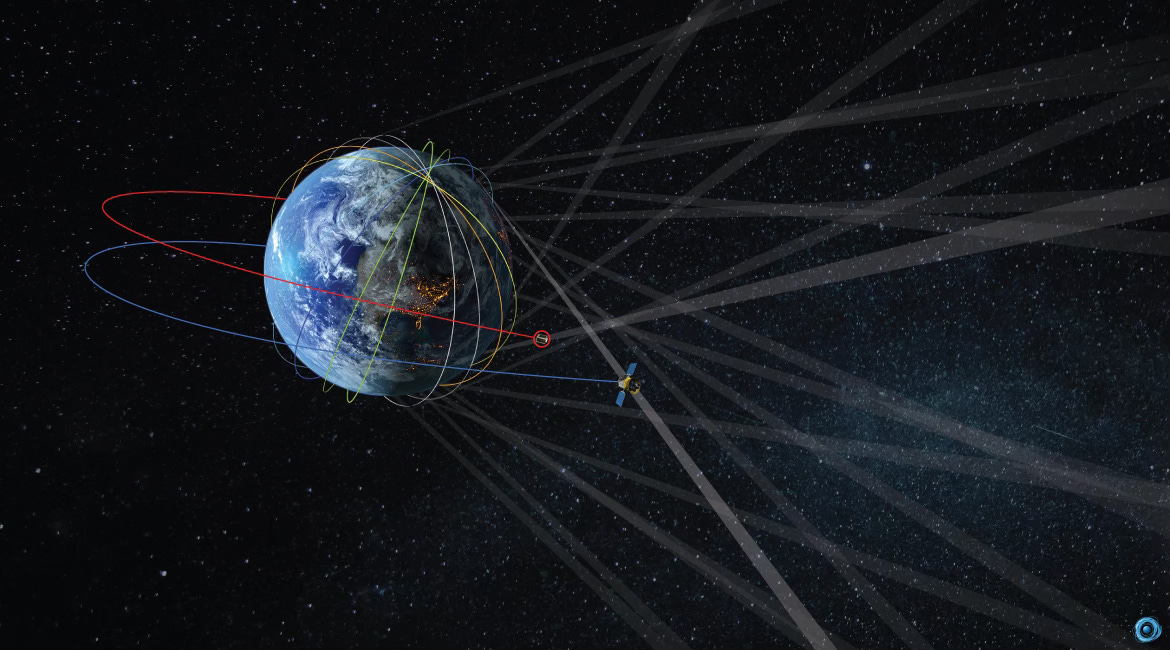The Middle East and Space Situational Awareness: A Path to Space Sustainability
In this guest post, Fawaz Islam of NorthStar Earth & Space Inc. explores the importance of Space Situational Awareness for the Middle East and global space sustainability.
Modernity implies the development of space infrastructure. Emerging space nations share a keen interest in participating with fair and sustainable access to orbits, but more is not necessarily the merrier. Space sustainability is the responsible use and preservation of outer space for present and future generations. This involves minimizing debris, ensuring the long-term usability of orbits, and promoting international cooperation in space exploration and utilization. With growing participation from the Middle East, including Saudi Arabia, the United Arab Emirates, Bahrain, Egypt, Oman, and Qatar, space sustainability is central to ensuring that all nations can build essential infrastructure and services in this domain. This fosters economic diversification and enhances environmental management in the region.
Why does this really matter? Almost every part of modern daily life and the world’s economy – as well as spaceflight – is dependent on satellite services. Satellite technologies such as GPS and communications enable everything from financial transactions to climate and weather monitoring, and our ability to fight climate change. In short, modern societies and the global economy depends on data collected and distributed from space. Additionally, the revenue from the new space economy is projected to exceed $1.8 trillion by 2035,[1] driven by the Fourth Industrial Revolution. In the Kingdom of Saudi Arabia alone, the space sector is expected to contribute significantly to the national economy, with the Communications, Space & Technology Commission predicting substantial growth in space-related markets, including Space Situational Awareness (SSA), which is anticipated to reach $300 million by 2030.[2]
In the Middle East, as in many other parts of the world, there is concern about the proliferation of uncontrolled space debris. This growing security and environmental threat vastly outstrips our ability to track and monitor these objects to ensure safe operations. The explosion of commercial space activities has accelerated this challenge. As Einstein said, “We cannot solve a problem with the same consciousness that created it.” We must NOT repeat our past behaviors on Earth in space.
Several countries in the region are investing significantly in space technology. The Kingdom of Saudi Arabia and the UAE are leading examples. Saudi Arabia’s Centre for Space Futures, opening in the fall of 2024, will encourage collaboration between the public and private sectors, incorporating best practices from communities into the global space sector. The center will also house the Centre for the Fourth Industrial Revolution Saudi Arabia, where youth competitions will seek innovative solutions to ongoing issues. In February 2024, the Saudi Space Agency organized an international conference titled "Securing the Future Growth of the Global Space Economy," reflecting their commitment to addressing the global threat of space debris with a focus on cutting-edge technologies like artificial intelligence in managing space traffic.
The UAE Space Agency has launched several initiatives aimed at addressing space debris and enhancing space situational awareness. Their National Space Debris Monitoring and Mitigation Program uses advanced technologies to track and manage space debris, ensuring the safety of their space assets. The UAE's collaboration with international partners highlights their commitment to sustainable space exploration.
One notable collaboration is the signing of an MoU between the Saudi Space Agency and NorthStar Earth & Space Inc. to advance SSA capabilities in the Middle East, focusing on sustainability by using advanced object tracking systems and data analytics. NorthStar is a leader in delivering commercial space-based SSA services, enhancing space sustainability and security. NorthStar’s space-based system elevates space sustainability by providing real-time tracking and monitoring, which is crucial for maintaining the safety and usability of orbits.
Saudi Arabia’s and UAE's leadership roles in the Middle East are evident through such international collaborations, aiming to create essential infrastructure and services for the next technological, informational, and environmental revolution. As we stand at the crossroads of sustainability and commercialization in low Earth orbit, we are on the launchpad of a lifetime opportunity. Space provides a massive economic opportunity; however, the risks posed by not pursuing sustainability are equally substantial. Uncontrolled space debris can jeopardize satellite operations, leading to costly disruptions, potential loss of valuable data, or limited access to space. The economic impact of such disruptions can be profound, affecting everything from financial transactions, and navigation for vehicles, to weather forecasting. Moreover, space is an essential part of modern national security apparatus for countries, with satellites playing a crucial role in defense communications, reconnaissance, and navigation.
We can achieve sustainability in our entire ecosystem of Earth and space while continuing our advancement and exploration. Through innovative technology and a shared common interest, we are empowering humanity to preserve our planet and beyond.
About the Author:
Fawaz Islam is the Executive Director of Sales and Business Development at NorthStar, where he previously served as Program Director, overseeing the development and deployment of space and ground infrastructure. With an extensive background in the space industry, he has held various roles at ARABSAT in Saudi Arabia, culminating as Chief Engineer. He holds an Executive MBA, a master’s in diplomacy, and a degree in Industrial Engineering.
Notes:
[1] https://www.weforum.org/publications/space-the-1-8-trillion-opportunity-for-global-economic-growth/
[2] "Saudi Space Market Investment Opportunities." Communication, Space & Technology Commission, Saudi Arabia, 2024. Available at: cst.gov.sa




